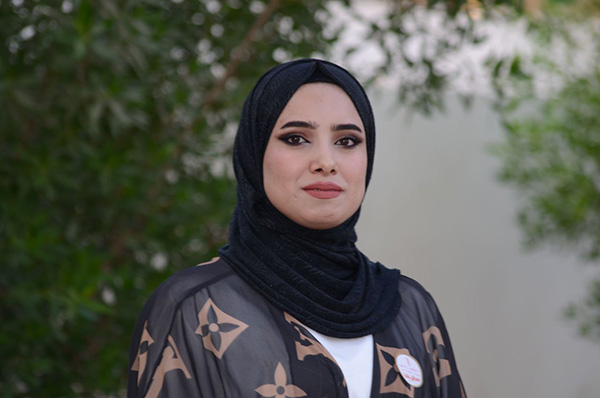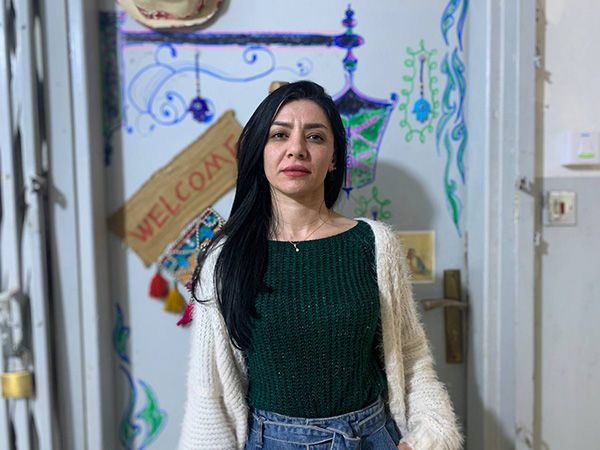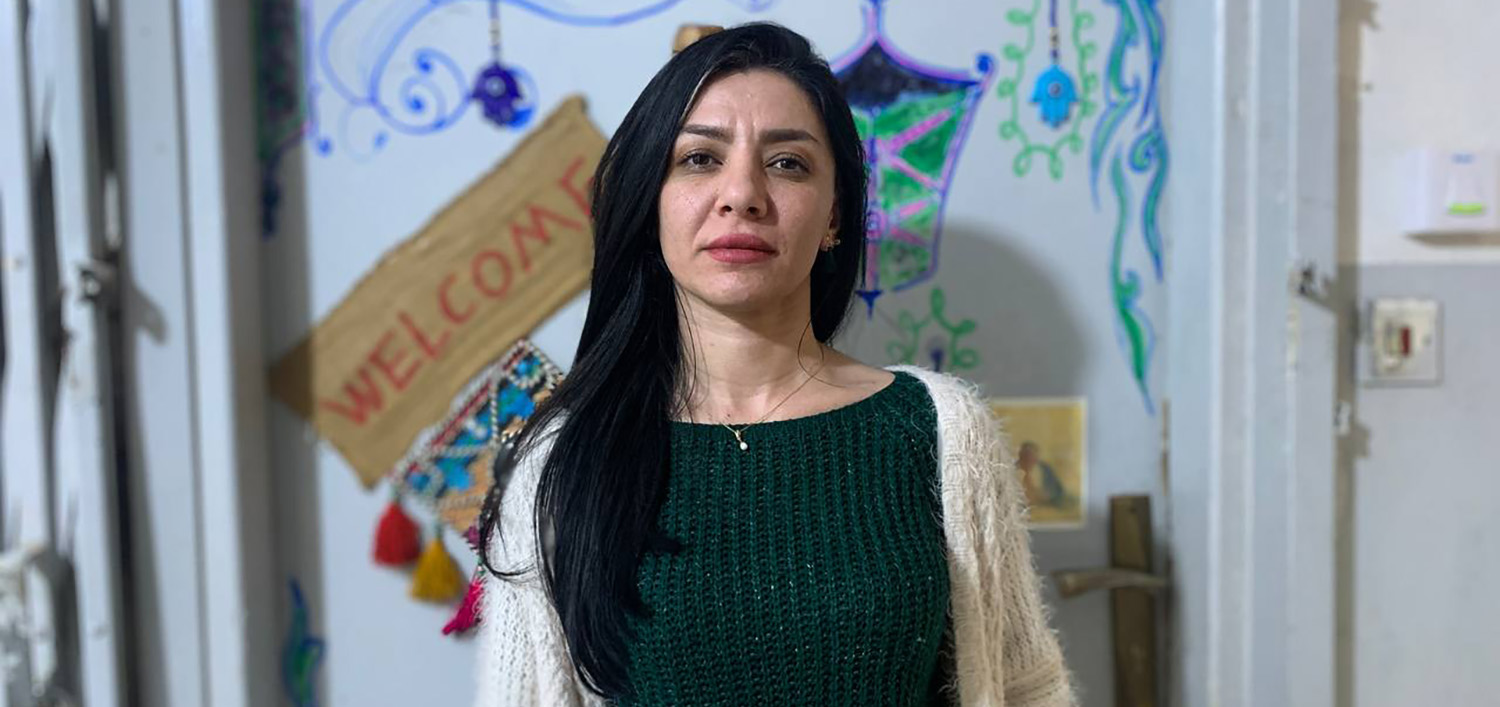From International Day Against Violence Against Women (November 25) to International Human Rights Day (December 10), the United Nations’ global Orange the World-campaign draws attention to gender-based violence during these 16 Days of Action. Together with our local partners, PAX works against gender-based violence in Iraq. We spoke to our Iraqi partners Esraa, Baraa, Maryam and Zahraa about their fight for a gender-equal society.
Esraa

Esraa works to combat gender-based violence (GBV) through a campaign against domestic violence.
“Gender-based violence (GBV) is present in most societies, because gender inequality is deeply rooted in our societies. Violence affects all members of society, both men and women, in a significant way.
Conflicts, such as clan/tribal conflicts or terrorist conflicts, also affects the spread of violence. In Iraq, there are many examples of violence against women, including physical violence, rape and kidnapping, as well as unequal access to leadership and administrative positions.
To combat GBV, it is necessary to raise awareness, through training and social media, on what is meant by violence, what your rights are and how we can achieve equality. We must also continue to advocate to abolish GBV. In doing so, we must ensure that we do not hold any biases towards male or female, or any other societal affiliation, such as clan or religion.
Why I do what I do? I strive to reduce the toxic phenomena in society. I want to change reality, even if just a small part. Through our campaign against domestic violence, I am committed to reducing crimes against women. We make sure women know their rights and know who they can turn to when a situation of violence occurs to them.
Domestic violence has been on the rise in recent times. We see many girls who ar killed, burned, raped or beaten. Women’s voices must be heard and they must take their rights. Our campaign is just the beginning.”
Baraa

Baraa is a human rights activist who fights for women’s rights in Iraq.
“Iraq discriminates between men and women in their rights and duties in almost every respect. Lately, we hear on a daily basis about honour and hate crimes against women and girls. Those crimes are committed by men out of revenge when women refuse marriage proposals. Recently, there was a story circulating on social media about an 18-year-old girl whose face was mutated and distorted by a man who attacked her with chemical water when she rejected his marriage proposal.
The problems we face today have political and social roots. The political root is that no laws have been developed to protect women, because no government has treated the protection of women as a priority. The social root is related to the traditional and patriarchal norms and values prevalent in society.
It is our duty as human rights defenders and feminists to work on more campaigns and trainings to raise awareness. We should also use social media to advocate for our rights. We must put pressure on parliament to pass laws to stop violence against women. The community will resist due to rooted beliefs, but we need change. The international community should support us in our struggle.
My motivation? I want to be part of this struggle so that I can provide our children a better reality. My wish is to have my own place and to be independent – I don’t want this by marrying the wrong person. Women and girls cannot live alone outside the family’s house, as this will cause them to have a bad reputation and social repercussions. I just want to live free.”
Maryam

“In Iraq, a majority of women are victims of different types of violence. Physical, economical or verbal. In fact, 29% of women experience all types of violence. Violence against women is thus a core issue in the Iraqi society. And the consequences are extremely destructive. Not only to women, but also to families and society.
My goal is to reduce gender-based violence (GGG) to the point where it no longer exists. It is very difficult to see women suffering from all kinds of violence and discrimination based on gender, while there are no laws or agencies to protect them. That has to change!
What is needed? A good start is to abolish the law that legally allows a man to punish his wife. As long as that law exists, there can be no equality. There should also be legislation against domestic violence. The international community can play a major role in putting pressure on the Iraqi government.”




